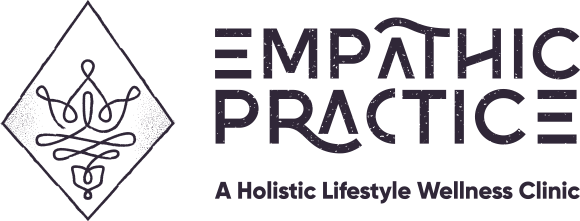The landscape of medical practice has undergone a significant transformation over the years. Gone are the days when communicable diseases solely dominated the medical agenda. Today, in our intricate and ever-evolving world, a new paradigm is emerging—one that transcends the traditional pharmaceutical approach. This blog post delves into the changing dynamics of medical practice, highlighting the need for a more holistic approach that considers the interplay of diet, sleep, mental resilience, and a supportive environment. Additionally, we’ll explore the relevance of plant medicine, including cannabis, as a tool for stress management within this holistic perspective. At Empathic Practice, we’re redefining healthcare by recognizing the broader factors that contribute to well-being.
The Shift from Infectious to Lifestyle-Based Challenges
Once upon a time, medical practitioners grappled with identifying infectious causes and prescribing suitable medications. The focus was on isolating the pathogen and administering the appropriate treatment. However, as the world evolves, so do the challenges we face. Today, health problems are frequently rooted in lifestyle choices and environmental factors. The rise of chronic conditions like obesity, diabetes, and heart disease has drawn attention to the pivotal role that diet, exercise, and mental well-being play in our overall health.
The Shortcomings of Quick-Fix Pharmaceutical Solutions
In the face of this new reality, the conventional model of medical care—characterized by brief office visits resulting in prescriptions from various specialists—often falls short. Patients are increasingly reluctant to adhere to this one-size-fits-all approach. Many find themselves grappling with prescriptions left unfilled, medications taken incorrectly, or a pursuit of alternative remedies such as herbal supplements and homeopathic treatments. This growing dissatisfaction underscores the need for a more comprehensive and personalized approach to healthcare.
Empathic Practice: A New Perspective
Empathic Practice embraces a fresh perspective on healthcare. Recognizing that health challenges are intertwined with various aspects of our lives, we acknowledge that a holistic approach is essential. Rather than focusing solely on medications and treatments, we prioritize addressing the root causes of health issues. Our philosophy centers around three key pillars: diet, sleep, and mental resilience.
- Diet: Food as Medicine
We firmly believe that what we eat directly impacts our health. A poor diet can lead to a range of chronic illnesses, while a balanced and nutrient-rich diet supports optimal well-being. Our approach involves personalized dietary guidance that empowers patients to make informed choices about the foods they consume. By viewing food as a form of medicine, we encourage positive dietary changes that promote longevity and vitality.
- Sleep: A Foundation for Health
In our fast-paced world, sleep is often sacrificed for productivity. However, the importance of quality sleep cannot be overstated. Sleep plays a crucial role in physical and mental restoration, and neglecting it can exacerbate various health issues. At Empathic Practice, we emphasize the significance of sleep hygiene and work with patients to develop healthy sleep routines that enhance their overall health.
- Mental Resilience: Nurturing the Mind
A resilient mind is better equipped to navigate life’s challenges. Stress, anxiety, and other emotional factors can manifest as physical ailments. Our holistic approach includes strategies to enhance mental resilience, such as mindfulness practices, stress management techniques, and fostering a positive outlook. By nurturing the mind, we aim to empower patients to overcome obstacles and cultivate lasting well-being.
Plant Medicine and Stress Management: The Role of Cannabis
As we explore holistic approaches to healthcare, it’s important to acknowledge the potential benefits of plant medicine, including cannabis, in managing stress and promoting well-being. Cannabis contains compounds known as cannabinoids, which interact with the body’s endocannabinoid system to regulate various physiological processes, including stress response.
Cannabis has shown promise in reducing stress, and anxiety, and promoting relaxation. However, it’s crucial to approach cannabis use mindfully and with a clear understanding of its effects. At Empathic Practice, we work with patients to explore whether cannabis is a suitable option for their stress management needs. Our personalized approach ensures that patients are well-informed about the potential benefits and risks, and we guide them toward responsible and informed cannabis use when appropriate.
Conclusion
The world of medical practice has evolved beyond the days of purely infectious disease-focused care. Today, a holistic approach that considers diet, sleep, mental resilience, and even plant medicine is essential for promoting overall health and well-being. At Empathic Practice, we are dedicated to revolutionizing healthcare by addressing the root causes of health issues and empowering patients to take charge of their well-being. In this complex world, our approach offers a beacon of hope—a path toward a healthier, more fulfilling life, where both traditional practices and innovative solutions like plant medicine can work in harmony to support holistic wellness.



